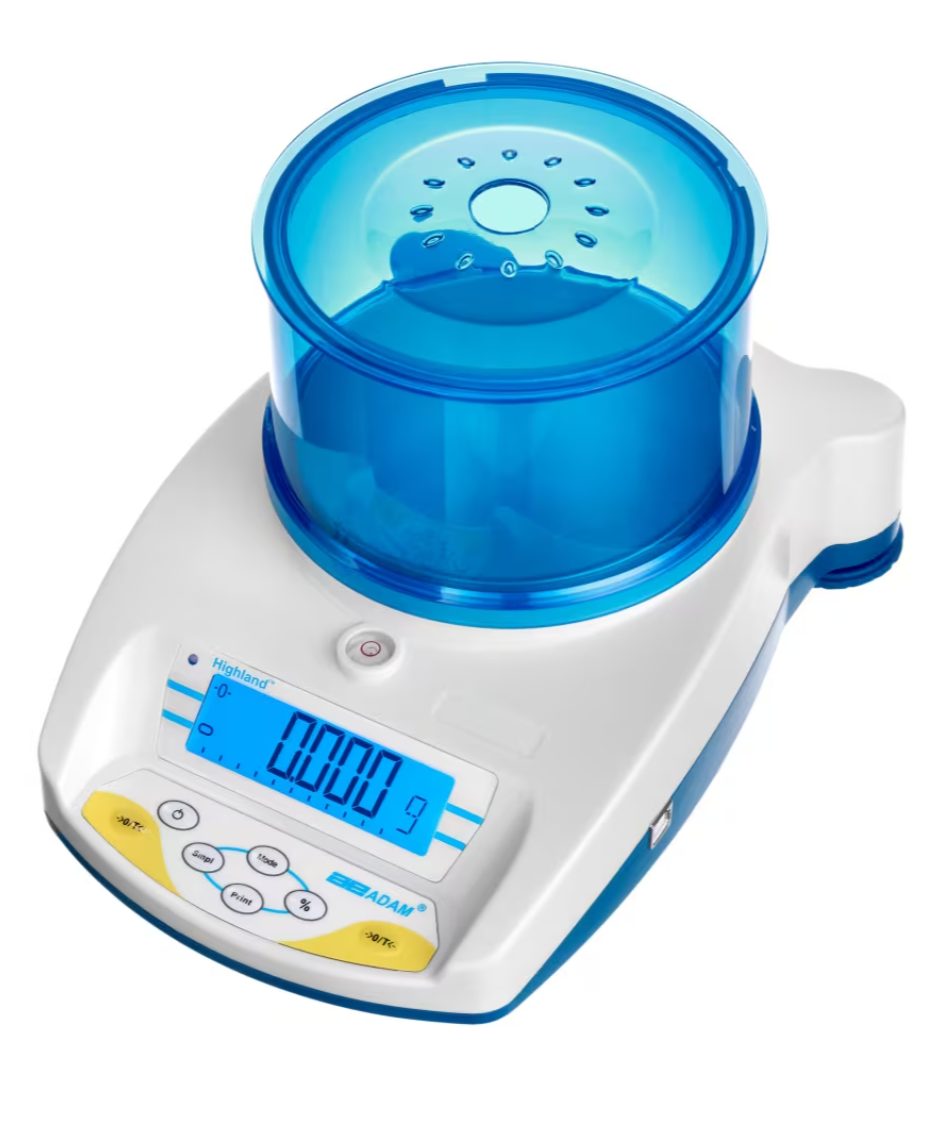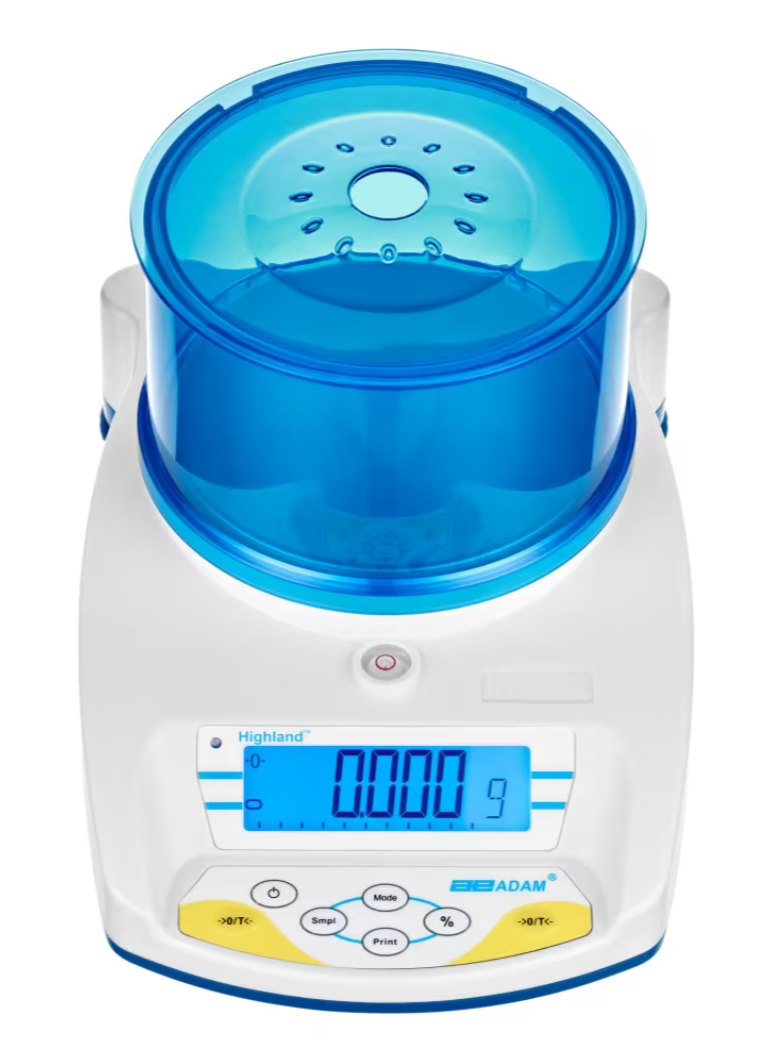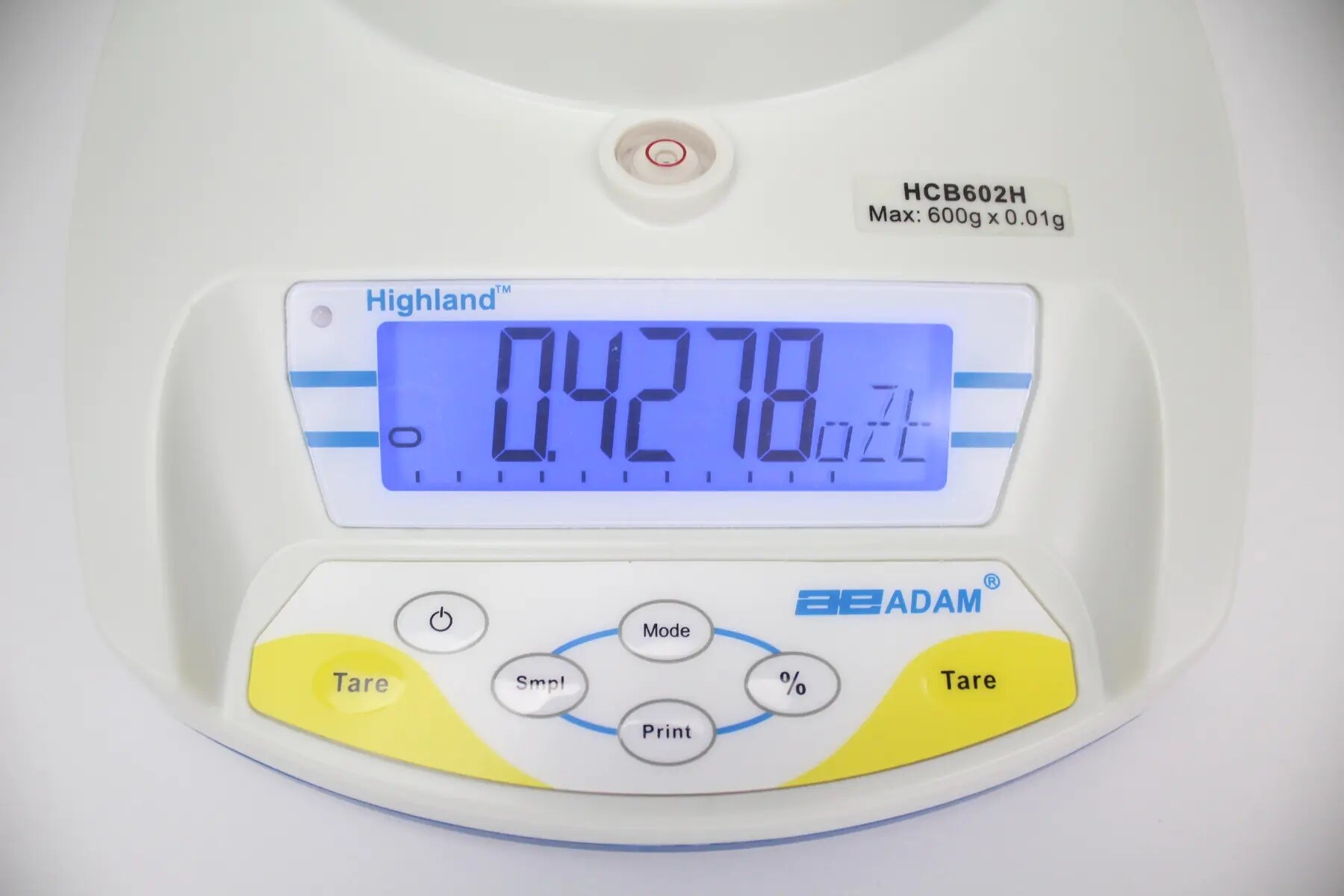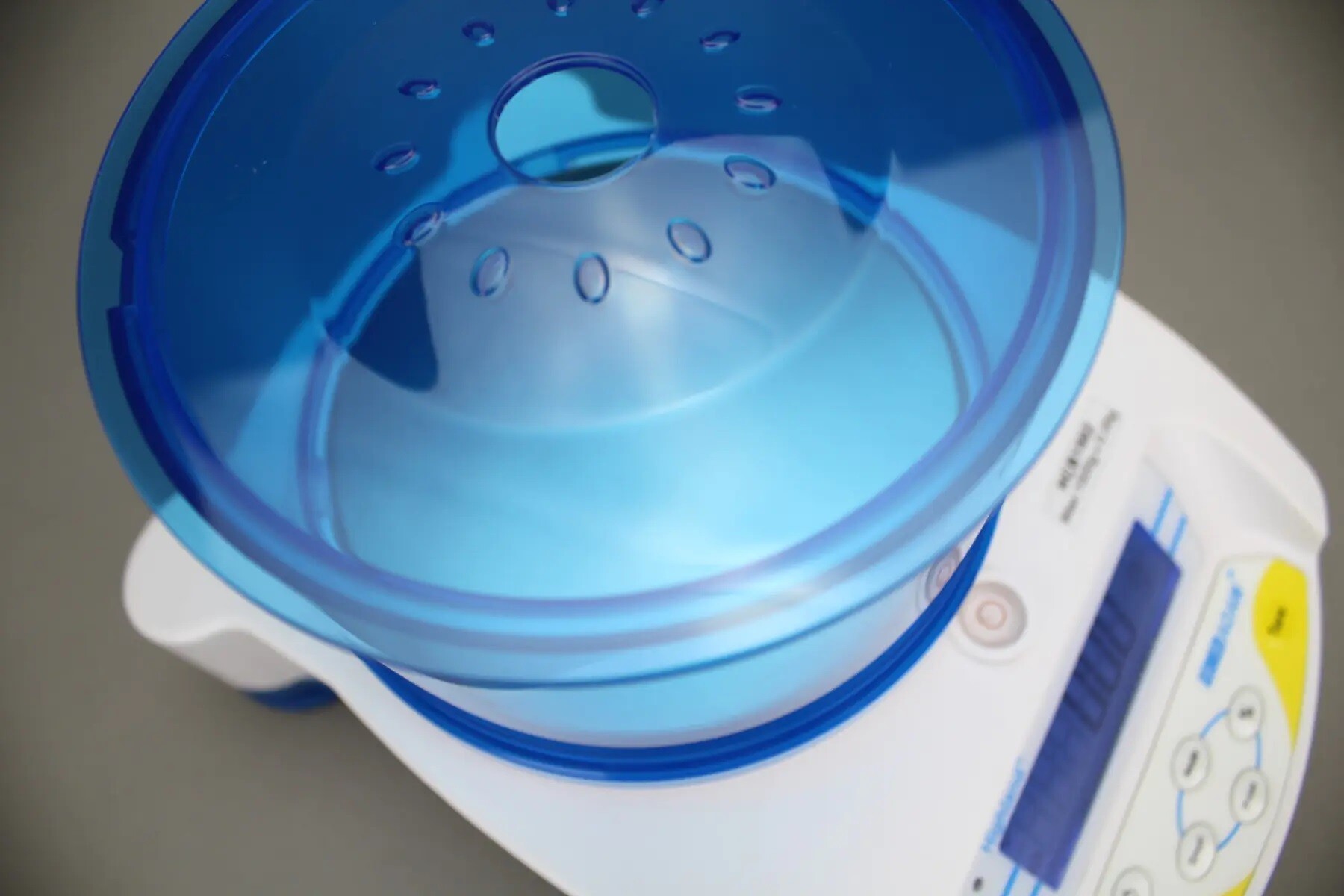Portable Precision Balances HCB
The Highland® offers advanced features in a compact, durable balance that stacks for easy storage. Suitable for many tasks, Highland provides fast, accurate weighing in a number of different environments – from science research in the laboratory or field, to manufacturing operations.
Sturdy ABS construction allows the Highland to stand up to demanding lab use, while Highland’s ShockProtect® offers advanced overload protection to keep the balance safe. HandiCal® facilitates internal calibration without the need for external weights.
Overview
Highland Portable Precision Balances: Compact, Reliable, and Versatile
Space-Saving Stackability
Highland balances with a 120mm pan size feature a unique stackable design, enabling safe and efficient storage to save space.
Enhanced Security
Protect your balance with a built-in security slot, compatible with an optional lock and cable to deter theft.
Seamless Connectivity
USB and RS-232 interfaces allow fast and efficient communication with computers and printers.
Easy-to-Read Display
The bright, backlit LCD provides clear visibility in any lighting condition, ensuring hassle-free operation.
Included Draft Shield
A removable draft shield reduces disturbances from air currents, enhancing measurement accuracy. (Not available on HCB 60001 models)
Built-in Internal Calibration
The HandiCal® feature provides easy internal calibration without external weights, simplifying setup and ensuring consistent precision.
Durable Construction
Designed for daily use, the ABS housing withstands tough environments, making it ideal for classrooms and industrial applications.
Portable and Convenient
Optional carrying case with a lock is available to facilitate secure and easy transportation.
Features and Benefits:
- Vivid Backlit LCD: Programmable backlight for visibility in any condition.
- Capacity Tracker: Monitor potential overloads directly on the display.
- Dual Tare Keys: Accessible for both left- and right-handed users.
- Adjustable Feet and Level Indicator: Ensure proper setup for accurate results.
- Stainless Steel Pan: Durable and easy to clean.
- ShockProtect® Technology: Guards against overload damage.
- Under-Balance Weighing Hook: Expand weighing options with a built-in hook.
- HandiCal® Calibration: Built-in feature eliminates the need for external weight sets.
- Rechargeable Battery: Operates virtually anywhere with included AC adapter and rechargeable battery.
- Energy Efficiency: Programmable auto power-off saves energy.
- Overload Alarm: Audible warning prevents capacity exceedance.
- External Calibration Option: Verify and adjust measurements with weights.
- Digital Filtering: Minimises the effects of vibration and external disturbances.
- Parts Counting and Memory: Tally results with ease using built-in features.
- Zero-Tracking Feature: Automatically ensures the display returns to zero.
- 3-Year Warranty: Guaranteed quality and peace of mind for years of reliable use.
The Highland Portable Precision Balances are designed for accuracy, durability, and ease of use, making them a trusted choice for a variety of professional and educational environments.
Specifications
- Dimensions
-
HCB 123 HCB 153 HCB 302 HCB 602 HCB 602H HCB 1002 HCB 1502 HCB 2202 HCB 3001 HCB 6001 Overall Dimensions WxDxH (mm) 174 x 252 x 80 - Technical Specifications
-
HCB 123 HCB 153 HCB 302 HCB 602 HCB 602H HCB 1002 HCB 1502 HCB 2202 HCB 3001 HCB 6001 Capacity 120g 150g 300g 600g 600g 1000g 1500g 2200g 3000g 6000g Readability 0.001g 0.005g 0.01g 0.02g 0.01g 0.01g 0.05g 0.01g 0.1g 0.1g Repeatability (S.D.) 0.0008g 0.005g 0.008g 0.01g 0.01g 0.01g 0.05g 0.01g 0.05g 0.05g Linearity (+/-) 0.003g 0.01g 0.02g 0.02g 0.02g 0.02g 0.1g 0.03g 0.2g 0.2g Minimum Weight (USP, typical) 0.02g 0.02g 0.02g 1g 0.5g 0.5g 1g 0.5g 20g 20g Pan Size 120mm ø 145mm ø Weighing Units g, lb, oz, N, GN, ct, dr, dwt ,mm, ozt, T, tl.H, tl.S, tl.T Stabilisation Time (sec) 3 2 3 2 3 2 Interface RS-232 / USB Calibration External calibration / Internal manual calibration Display Backlit LCD with 18mm high digits Power Supply 12VDC 800mA adapter / Internal rechargeable battery Operating Temperature 0° to 40°C Housing ABS plastic Draught Shield 132mm ø x 90mm N/A Net Weight 2kg
Downloads
Support & FAQs
At Thermoline, we strive to supply helpful customer support to ensure that you get the most out of our products. We are committed to providing whatever support our customers need, wherever they are in the world. If you can't find your solution in the below FAQs or Knowledge Base, please contact our friendly support team.
- What is laboratory balance?
A laboratory balance is a precision instrument used to measure the mass of an object or sample. It is designed for use in laboratory settings and is typically more accurate and precise than a standard scale.
A laboratory balance typically consists of a weighing platform, a load cell to measure the weight of the sample, and a digital display that shows the result. The load cell converts the force of gravity acting on the sample into an electrical signal, which is then displayed on the digital display.
- What is the difference between a scale and a balance?
While scales and balances are both used as weighing devices, their intended purposes vary slightly.
A scale is used to measure weight (weight = the force of gravity on an object on the scale), whereas a balance is used to measure mass. (mass = the amount of matter in an object). A scale is a general-purpose measuring instrument that gives an estimate of the weight of an object. They typically use spring mechanisms to measure weight and have a lower precision compared to laboratory balances.
A balance, on the other hand, is a highly precise instrument used in laboratory settings. Balances use load cells to measure weight and provide a much higher level of accuracy compared to scales. The readout on a balance is usually digital, and the results can be displayed in various units of measurement, including grams, kilograms, and ounces.
- What are the appropriate conditions for a laboratory balance?
- You should first install the balance in a workroom free of vibrations and shakes and where there is no air draft or dust. You want to ensure that the ambient temperature is between +15°C and +35°C while ensuring that the relative humidity is not above 80%. Place the balance either on a robust-design table or on a wall bracket that is both distant from heat sources and insusceptible to vibrations.
- What is the difference between a precision balance and an analytical balance?
Precision balances and analytical balances are both types of laboratory balances, but they differ in their level of precision and the types of applications for which they are used.
A precision balance is a type of laboratory balance that provides accurate measurements within a range of ±0.1 to ±0.01 grams. Precision balances are typically used for routine weighing tasks, such as determining the mass of chemicals for routine laboratory experiments, or for checking the weight of small parts in industrial settings.
An analytical balance, on the other hand, is a highly precise type of laboratory balance that provides accurate measurements within a range of ±0.0001 grams. Analytical balances are used for more demanding applications, such as determining the mass of samples for highly accurate chemical analysis, or for weighing minute quantities of substances in medical and pharmaceutical research.







